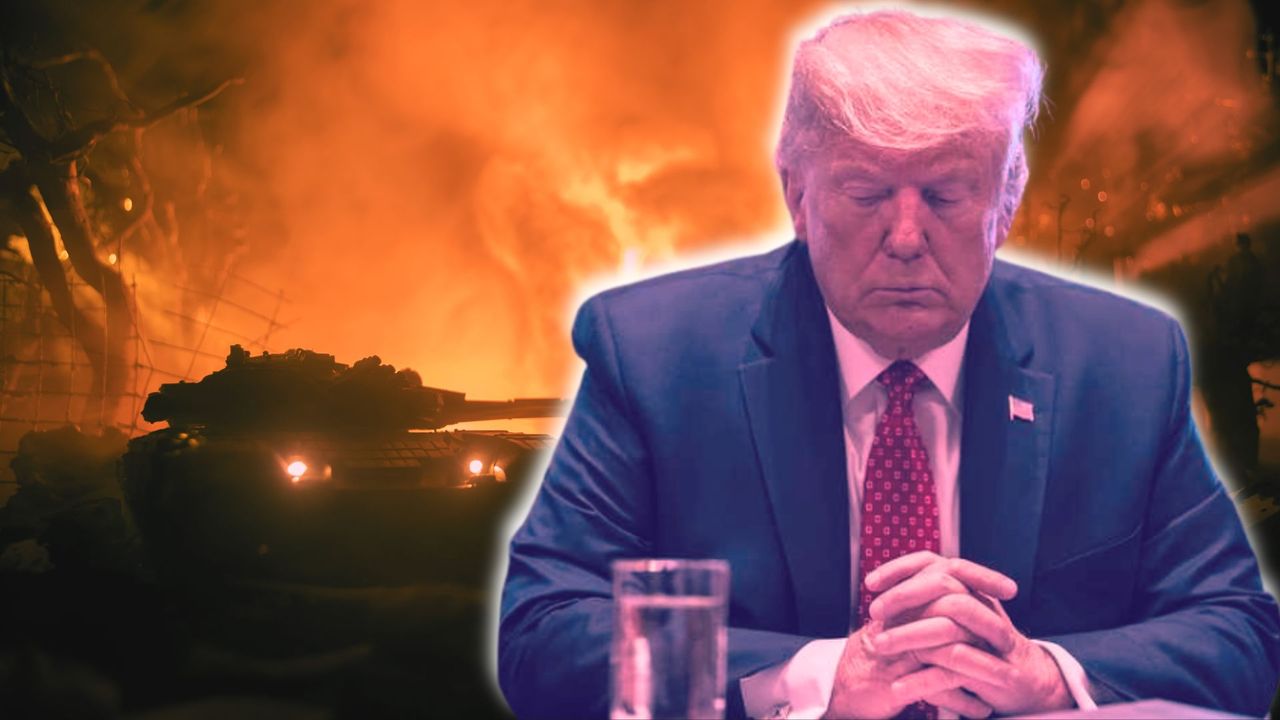President Trump-Engineered Peace: How Stable Is It?

President Trump-Engineered Peace: Appearances vs. Reality
As the world shakily endeavours to reconcile with unfinished wars—some raging and others forcibly shut down by the United States—there is deep anxiety all around about how long peace will really last. Bizarrely, the one that has not found space in the matrix of a transactional President Donald Trump is the bloody war in Gaza fought between Israeli Defense Forces (IDF) and Palestinians, where more than 55,000 people have been killed since the war began on October 7, 2023. The dead include, bizarrely, 12,000 children. It is befuddling that the deal-maker President Trump never thought it important to use his immense military, financial strength, and global influence to stop the war in Gaza.
President Trump finds his intervention to stop the war between nuclear-armed India and Pakistan as worthy of a Nobel Prize—a claim that India, officially, denies. Pakistan Army Chief, General Asim Munir, who managed to get a lunch invite from the White House, forcibly endorsed President Trump’s assertion that it was he alone that stopped the war. By forcefully backing Trump, Munir and Pakistan are trying to show that India is telling lies. Pakistan also manages to curry favour with Washington, which could have long-term security and foreign policy implications for India. For some years now, India has been trying hard to become close to the US and slowly distancing itself from China-Russia-centred regional alliances. While India’s exertions that mostly endeavoured to show Pakistan as a sponsor of terror have begun to flag, Islamabad and its military have visibly improved their global profile with US support.
Pakistan’s endorsing the credentials of President Trump as a peacemaker is critical for the maverick US President, who is trying to burnish his credentials after how he brokered peace between Iran and Israel. The 12-day war, as President Trump likes to call it, was brought to a sudden halt after Iran retaliated against the US bases, after it had used bunker buster bombs through its B2 aircraft on nuclear sites in Fordow, Isfahan, and Natanz. Though Israel is being shown as a victor for dragging the US to use its superior bunker busters to destroy Iran’s facilities, there is growing evidence that the US could not destroy its targeted sites. Israeli media alleges that it was deliberate, as Iran reciprocated the soft handling of retaliation when it first informed the US that it was about to attack its naval base at Doha, Qatar, and later, its six missiles failed to hit the base effectively.
The ceasefire followed a similar script witnessed between two nuclear-armed neighbours—India and Pakistan. It was clear that President Trump did not want Israel or Iran to aggravate the situation. Also, he did not want Iran to shut the Strait of Hormuz and throw world shipping and oil prices out of whack. Twenty percent of the world’s oil passes through a 20-kilometer-wide strait, which is controlled by Iran. Besides the Strait of Hormuz, the declaration of war by Iran had also triggered the Houthis, who had started throwing their hypersonic missiles on Israel and ships going through the Red Sea.
For Israel, too, it made sense to stop the war. Former advisor of Trump, Bannon, said that the US President was trying to save Israel from destruction. Though facts have been quietly buried, the physical destruction of Israel has been extensive. At many places, Israeli cities resemble Gaza. Interviews of Israeli refugees to Cyprus show that many of them had not thought the war with Iran would be so tough. Many Israelis complain that they have not been able to sleep for many weeks. On social media, there was a reel of the Israeli Defence Minister who was accosted by local residents—for their misery. All this indicates that Israel and Iran, too, wanted the war to end.
Netanyahu managed to drag the US into this war as he knew that without the bunker buster bombs of the US, his Air Force could not reach the depths of Fordow. The Israeli Air Force can reach only 20 metres into mountainous Fordow, whereas US bombs can hit at around 80 metres. Still, it is believed—if US intel leaks are anything to go by—that the target escaped the big bombs. President Trump denies it, but this is enough for Israel to harp on the fact that Iran could still build the bomb. Expect them to ratchet up their demands from the US for another strike soon.
News